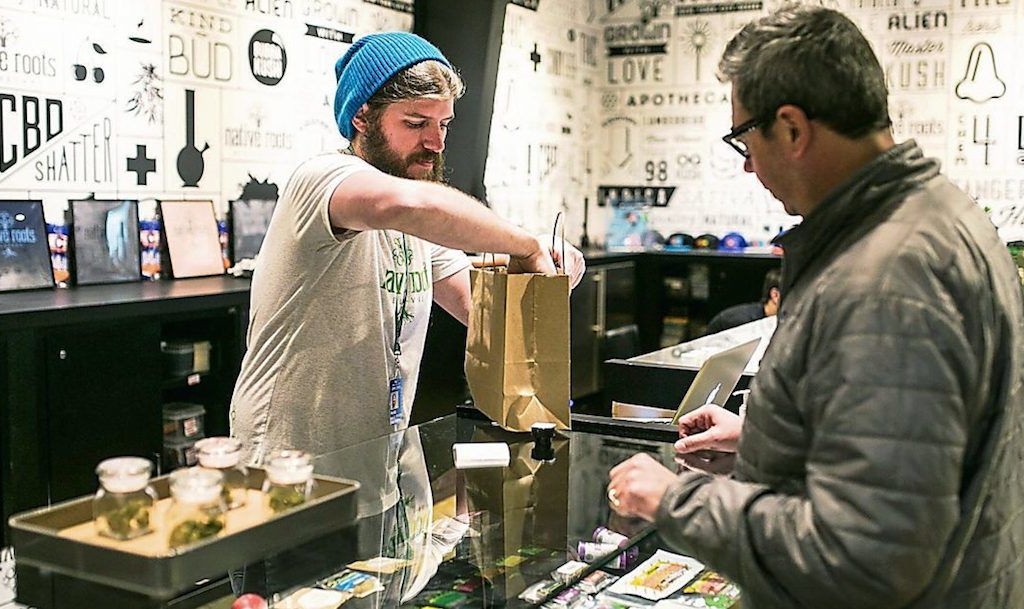Image via
The US cannabis industry now employs twice as many people as it did in 2018, according to Leafly‘s latest annual jobs report.
The US Department of Labor keeps count of the number of employees working at most American businesses, but does not account for weed-related jobs because cannabis is still a Schedule I drug. To keep track of the growing cannabis industry in the US, Leafly partnered up with Whitney Economics in 2017 to start releasing annual weed job reports.
According to the latest annual report, the US cannabis industry now supports 321,000 full-time equivalent jobs, more than double the 149,300 full-time jobs offered in 2018. This total includes every job related to weed, from accountants who never touch the plant to the people who are planting the seeds. There are currently more weed industry workers than EMTs, paramedics, electrical engineers, or dentists – and Michigan even employs more cannabis workers than cops.
In 2020, a year when many businesses were forced to lay off their staff due to the pandemic, the pot industry added a record number of jobs. Legal weed businesses added 77,300 full-time jobs last year, a 32 percent increase over the 33,700 new jobs added in 2019. Most states deemed cannabis businesses as essential services during the pandemic and allowed them to remain open. As a result, 37 legal-weed states sold over $18 billion of product last year, a 71 percent gain over 2019.
But even though the pandemic helped boost sales to a record level, analysts believe that it actually kept the cannabis industry from adding even more jobs last year. Social distancing and occupancy limits made it difficult for businesses to add too many new employees, and some businesses ended up short-staffed when employees were quarantined or contracted the virus.
California is still the king of the US weed industry, with 57,970 full-time equivalent jobs and $3.77 billion in sales reported last year. Several other states are playing catch-up, though. Michigan and Illinois each doubled the size of their cannabis industries last year. Illinois broke weed sales records almost every month in 2020, and now has the 8th-biggest pot market in the US.
Illinois’ weed industry is set to expand even further this year, but out of 75 new pot retail licenses granted in 2021, not one of these businesses is minority-owned. In Massachusetts, only three of the state’s 260 weed shops are Black-owned, and only seven are owned or co-owned by women. Black Americans account for 13 percent of the total US population, but less than two percent of all legal weed businesses are Black-owned.
These statistics highlight the fact that the weed industry’s racial and gender disparities remain in full effect, despite states’ efforts to create social equity programs. “The cannabis industry must show true commitment to equity as it expands, so the wealth generated by this new opportunity will uplift minority communities,” Leafly writes. “If it cannot, we will continue to see these communities struggle in the shadow of white supremacy without a fair shot.”











